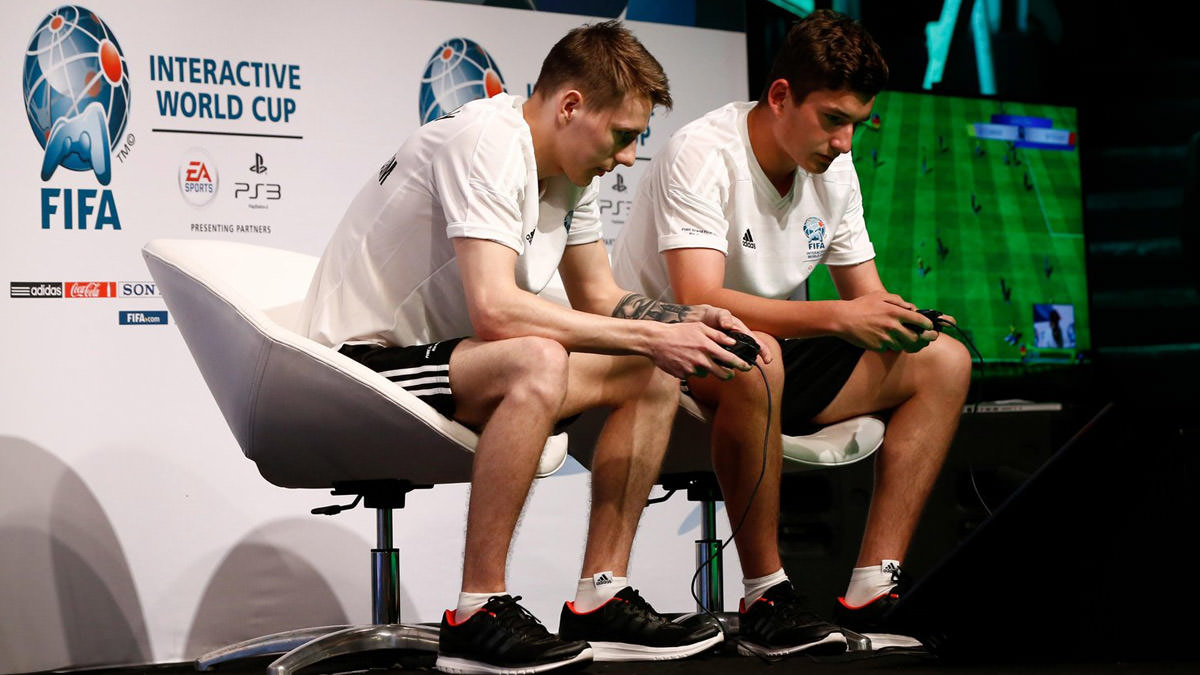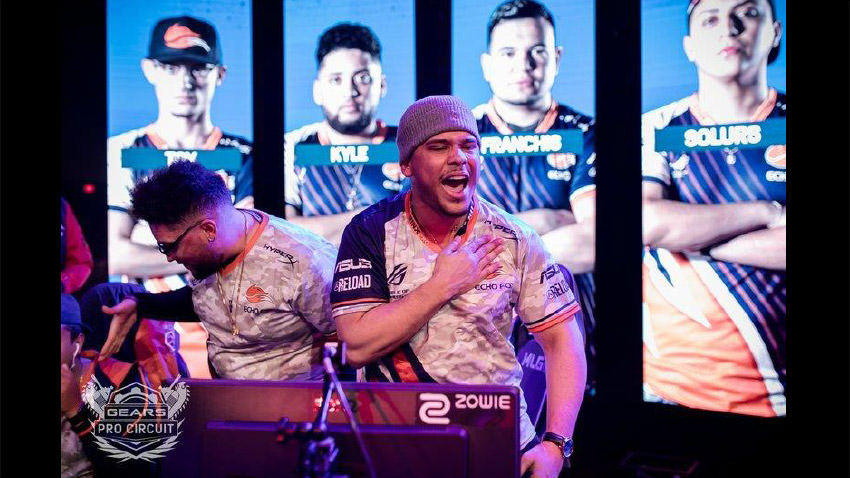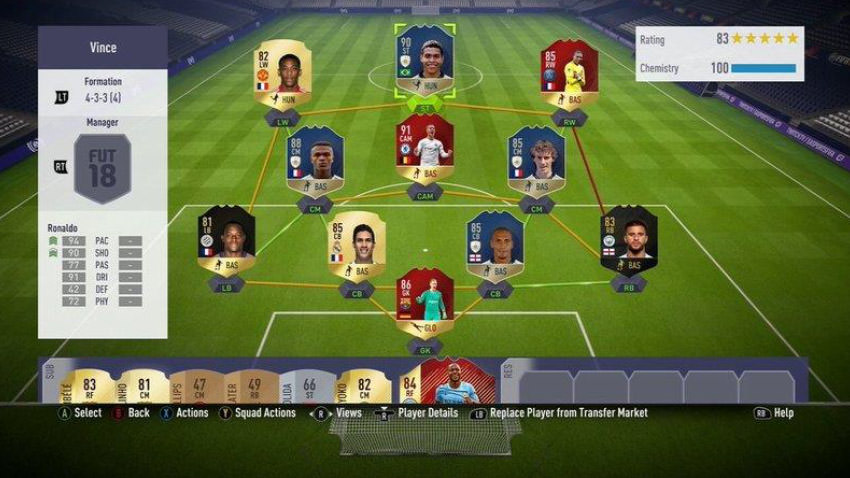
Electronic Arts’ FIFA franchise is among the most popular games every year without fail. As the game is based on the most popular sport in the world, football, it has a gigantic built-in audience and allows players to enjoy the sport differently, while playing as their favourite players and teams. The many game modes that FIFA has makes it a great game for single players, couch co-op gamers, and online multiplayer fans, enabling it to appeal to all forms of gamers. The impeccable graphics, player likeness, licenses, and game mechanics have all combined to make it a superb football game.
So, being the most popular game in the world based on the most popular sport in the world, you’d be forgiven for assuming that it was among the elite when it comes to eSports. The eSports industry is growing at an incredible rate, with games like Dota 2, League of Legends, Counter-Strike: Global Offensive, StarCraft II, and Rocket League among those headlining, but FIFA hasn’t had as much of an impact as many would assume. This could be down to a number of reasons, even coming down to the fundamentals of the game itself, but is there a chance that FIFA can get to the lost heights of other top eSports franchises?

The Popularity of eSports
For a while, the notion of eSports was laughed off, but with growing popularity, more money on the line in major tournaments, global coverage, and truly skilled players emerging from the common rabble, it has almost become fully recognised as a legitimate sport. Thanks to how the top games are balanced and the greatly increased level of interest, even bookmakers have deemed it legitimate enough to offer odds on many top tournaments as eSports is taking off for fans, sponsors, and players alike.
In fact, eSports revenue is expected to more than double over the next few years, going from $696 million in total revenues in 2017 all the way up to $1488 million by 2020. It’s a rapidly growing industry, and in attempting to align itself alongside traditional sports, the industry should have tagged in a sports game like FIFA to act almost as a flagship, but they couldn’t. There are many aspects of the biggest eSports games that FIFA simply differs too much from for it to compete.

Leaving a Lot to the AI
One theme that runs through the vast majority of the most popular eSports games is that each player only controls one character at a time. This means that the eSports player controls everything that the character does in-game, making their play entirely skill and tactics-based. On FIFA, however, a player is only in control of 9.1 percent of their team at any one time, meaning that the AI is doing 90.9 percent of the work.
As playing team versus team modes is the most popular form of play on FIFA, with FIFA Ultimate Team headlining the sports game franchise, this means that the majority of what’s going on is dependent on the player’s accumulation of top players. Sure, the player needs to control their characters both on and off of the ball, but the singularity of it means that skill doesn’t entirely decide the game, but also how the AI reacts to the player’s actions.
Even though this is the same experience for every single person playing FIFA, EA’s in-game methods have made the playing field distinctly tilted towards certain players. Yes, there is a certain level of skill involved to be good at the game, but if a player has far better characters than another player, they’re far more likely to win a game.
In the top eSports like Dota 2 and League of Legends, while the characters may differ, people can acquire and play as any of them that they like either immediately or by making a direct, one-off purchase – which is not the case with FIFA Ultimate Team. Also, just looking at the most sports-like eSports in Rocket League, even though the cars look different, they all have the same functions, and only differ quite slightly when it comes to parameters and physics – but selection mostly comes down to the player’s feel.

Oh EA, You’ve Finally been Caught!
As any and all gamers will fully know, FIFA creator Electronic Arts has had a lot of trouble surrounding its launch of Star Wars: Battlefront II. The first game, Star Wars: Battlefront, came under fire for being too shallow with a very pricey DLC package to make it into nearly a full game, so this second instalment was under the microscope from announcement day. Since early release, fault after fault has been unveiled, and EA has frantically attempted to appear to right the ship in the face of adversity, but it has, for the most part, failed spectacularly. The focal point of the outrage of the player base has been on EA incorporating a system of loot box micropayments, thus making the majority multiplayer AAA premium game into a pay-to-win game.
This sparked something in the somewhat dormant FIFA community: why hasn’t FIFA had an uprising before? Ultimate Team is essentially pay-to-win via the loot box-like card packs. Furthermore, the characters in the card packs effectively expire unless more money is spent to increase contract length. While the in-game money market helps to keep the volatility of pay-to-win down a little, the microtransactions certainly hurt the game’s potential to become an eSport. Thankfully, the FIFA community has had somewhat of a mini-uprising against EA for these microtransactions that they must endure.
There are other online game modes, but by far the most competitive and popular is FIFA Ultimate Team. If EA wishes for FIFA to become an eSport, it needs to shed the pay-to-win factors and balance the game. In other eSports, if further payments are used to get play- altering additions such as new characters, players can directly pay for what they want, often at a very cheap rate. FIFA differs from this due to how much better certain characters are than others – as you would expect from a realistic sports game.
A Different Route for FIFA
How can FIFA become a fully recognised and legitimate eSport? By taking out the AI’s influence and removing microtransactions and the luck of packs from the competitive equation. This can all be achieved by EA moving their gaze to a different existing game mode.
The game mode Be A Pro could be the perfect site for FIFA to base an eSport around. It enables each player to just play as one of the in-game characters, it balances the game as everyone starts off with a similar parameter bias – which could be bolstered by a ‘class’ system for player selection in each game rather than a “create your own” star – and, best of all, it creates a game that’s wholly based on player skill.
Overall, however, the sheer amount of money injected from EA will eventually grow a more recognised eSport for FIFA, but it could be further legitimised in the eyes of the rest of eSports community by changing the focus.
Comments